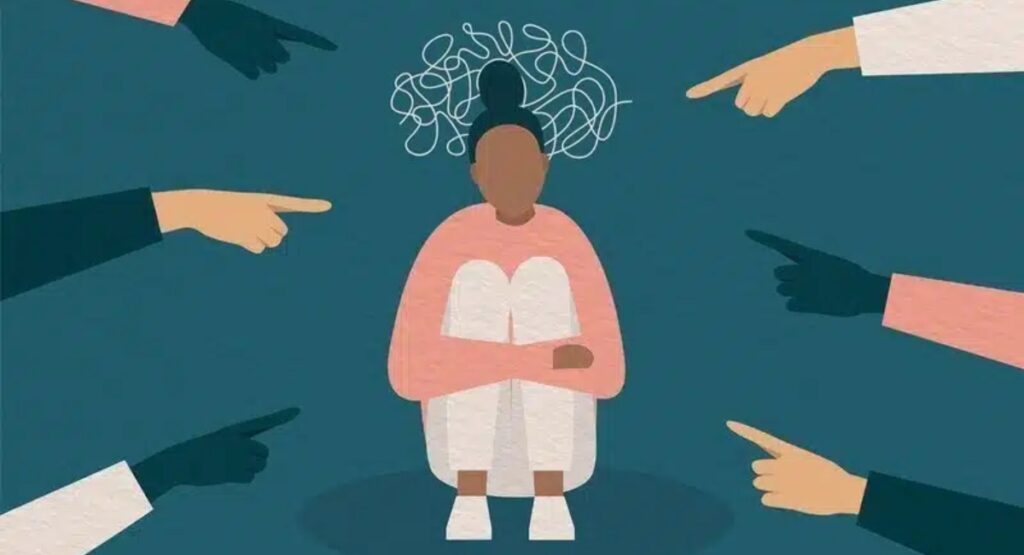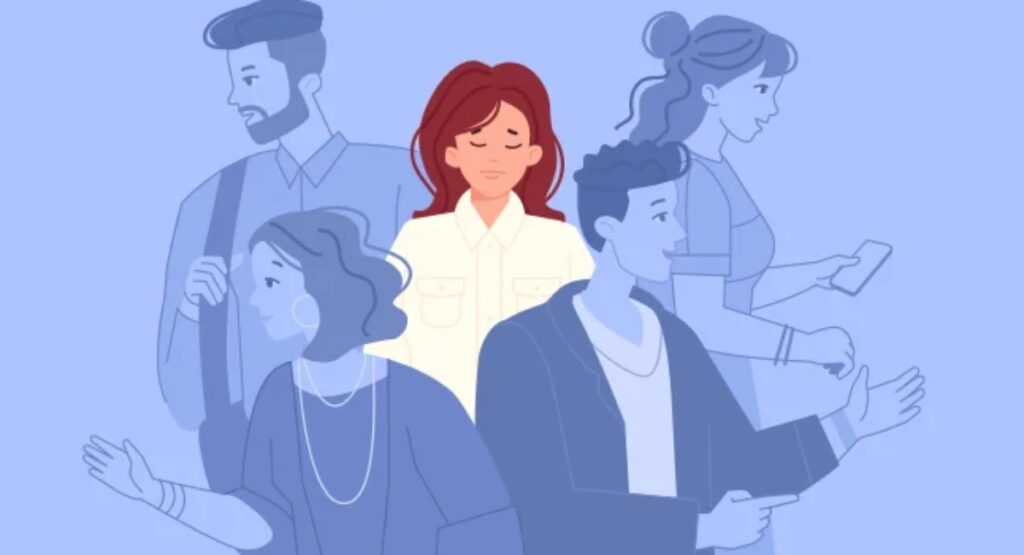We live in a connected world. But not all connections are healthy. As screens take up more of our time, many people feel alone, judged, or anxious. This feeling is often called social anxiety in the digital age. It’s real, growing, and linked to how we live online. Understanding it can help us feel better, both online and offline
In this post, we will explore what social anxiety means today, how social media and screens affect us, and what we can do to fight back. We’ll keep it simple, useful, and friendly—because mental wellness should never be complicated.
What Is Social Anxiety in the Digital Age?

Social anxiety is the fear of being judged or rejected in social situations. It can make someone avoid people, struggle with conversations, or feel nervous in public. But in the digital age, this anxiety has changed. Now it’s not just face-to-face interactions. It’s also about texting, posting, video calls, or even checking who saw your story.
People worry about being “seen” online. They check likes, replies, or whether someone opened their message. Some fear posting the wrong thing. Others stay silent because of online anxiety. These fears build up and affect daily life. That’s why it’s important to understand the modern form of this condition.
Causes of Social Anxiety Triggered by Digital Life
The internet gives us many benefits. But it also brings hidden stress. One cause is self-comparison. We see perfect photos, big achievements, and fake smiles on social platforms. This makes people feel like they’re not good enough. They begin to compare their real life with a highlight reel.
Another reason is cyberbullying. Words hurt—even more when they’re online and seen by many. It creates fear of judgment. Add FOMO (fear of missing out), and the mind stays anxious. Long screen time can also make it worse. The brain gets tired, leading to more worry and less peace.
How Social Media Fuels Social Anxiety

Social media feels like a fun place. But behind the likes and shares, many people feel pressure. They post to please, not to express. If a post doesn’t get attention, they question their worth. This cycle causes deep online stress and emotional fatigue.
Apps like Instagram and TikTok use algorithms that show you endless content. It’s easy to fall into scrolling fatigue. And after hours of swiping, you feel empty. You wonder why others seem happier. This is how social media quietly feeds social anxiety in the digital age.
Signs You Might Be Experiencing Digital-Age Social Anxiety
Are you feeling nervous before sending a simple message? Do you avoid video calls? You may be showing signs of digital-age social anxiety. Some people overthink how their messages sound. Others check if someone read their message or left them on seen. This constant worry is mentally draining.
Other anxiety symptoms include feeling bad after scrolling, losing sleep, or avoiding social apps. You may feel disconnected from real life. You want to interact, but something stops you. These are warning signs. It’s your mind asking for rest and healing from internet stress.
Effective Strategies to Overcome Social Anxiety Online and Offline
Start small. Choose one app and reduce your use. Limit how much time you spend replying or scrolling. Slowly, you’ll feel in control. Try mindfulness practices like breathing or staying present. They help reset your brain. Facing fears in steps is key.
Another useful method is CBT (Cognitive Behavioral Therapy). It helps you change negative thoughts into positive actions. Journaling also helps track triggers. Replace bad habits with healthy ones—like walking, calling a friend, or reading. You’re not alone, and healing is possible.
Digital Detox: Can Reducing Screen Time Help?
Yes, it really can. A digital detox gives your brain space to rest. When you reduce screen time, you break habits that feed smartphone addiction. This lets you enjoy real life again. It’s not about cutting off totally—but using technology in a better way.
Let’s look at a quick plan:
| Day | Action | Goal |
| 1 | Check screen time usage | Become aware of habits |
| 2 | Turn off notifications | Reduce distractions |
| 3 | No phone 1 hour daily | Build mental focus |
| 4 | Unfollow negative pages | Lower triggers for FOMO |
| 5 | Replace with reading | Shift to calming offline tasks |
This simple detox plan helps lower online stress and improves your mental health.
Seeking Help: Therapy and Online Resources for Social Anxiety
There’s no shame in getting help. Many people find relief through online therapy platforms like Better Help or Talk space. They offer access to trained professionals from the comfort of your home. Talking to a therapist helps you manage your feelings and create a plan.
You can also find virtual support through forums, apps, or chat groups. These spaces remind you that you’re not alone. Healing starts when you take one step. Whether it’s a message, a session, or a break—every move matters.
Final Thoughts
Social anxiety in the digital age is real, but it doesn’t have to rule your life. By understanding it, facing the causes, and using small tools like CBT, digital detox, or mindfulness, you can feel better day by day. Stay kind to yourself, and remember—you’re doing just fine.
FAQS
1. How does technology affect social anxiety?
Technology increases online anxiety by encouraging self-comparison, FOMO, and constant screen time, which can lead to stress and isolation.
2. What are the social issues in the digital age?
People face problems like cyberbullying, scrolling fatigue, smartphone addiction, and less real-life connection due to excessive digital use.
3. Why does Gen Z have social anxiety?
Gen Z grew up online, where likes, followers, and judgment are constant, causing higher rates of mental health issues and fear of judgment.
4. How does social media cause anxiety in teens?
Social media causes anxiety symptoms in teens by creating pressure to be perfect, fear of missing out, and worry about online image.
For more health regarding articles, you can read out our previous article:
7 Amazing & Surprising Health Benefits of Playing Sports for Mind and Body
The Impact of Globalization on Local Cultures: Effects on Society, Language, and Traditions

